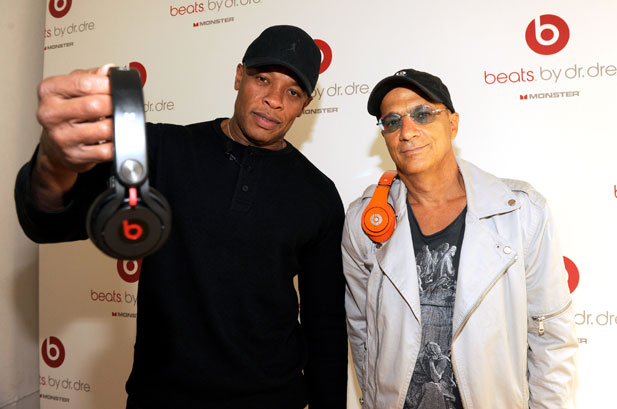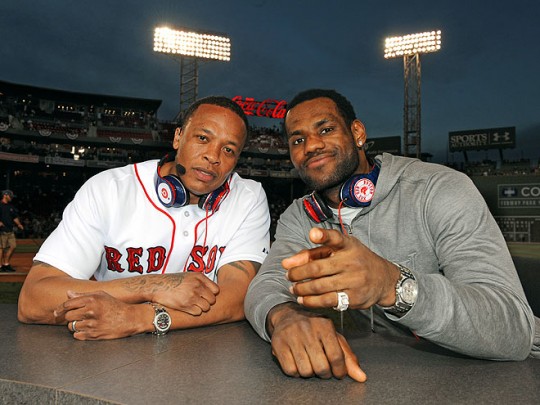Don’t be fooled by your favorite rappers. When they imply that making the Forbes list is meaningless or that the list itself is irrelevant many of them are not being honest. Zack O’Malley Greenburg knows this firsthand. As editor of the Cash Kings list at Forbes magazine, Greenburg often receives phone calls from artist managers aggressively aiming to talk up the estimated earnings of their clients. In the five years that Greenburg has overseen the annual project he stands by a specific scientific method that uses to generate the financial data.
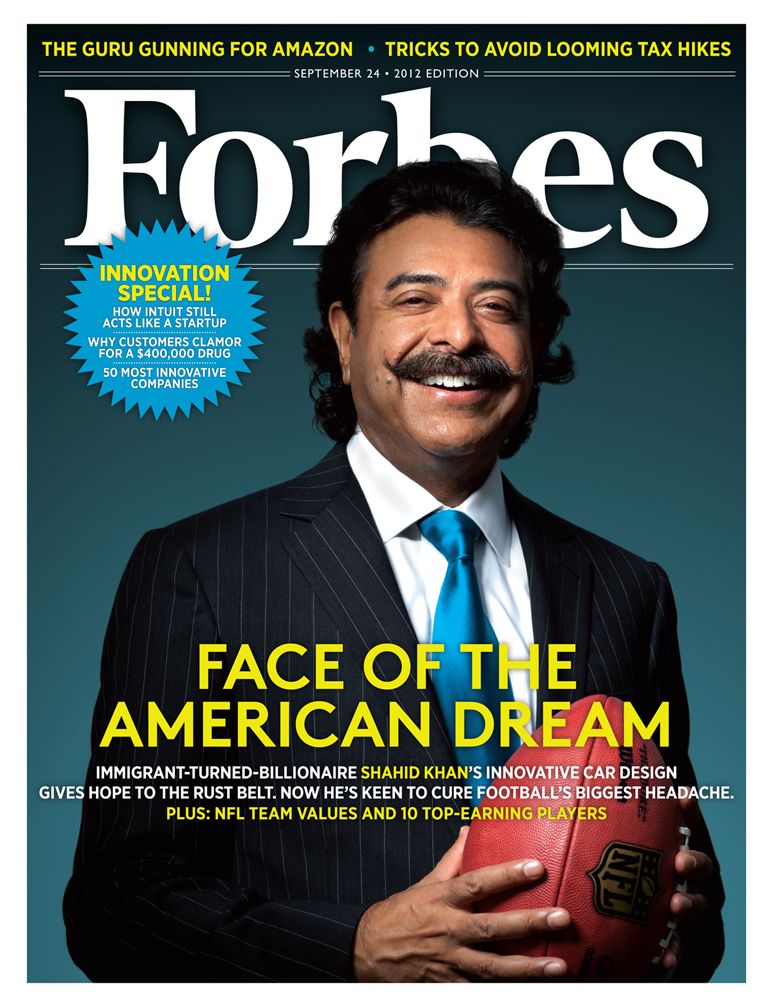 The list has garnered attention from some of rap’s biggest money-makers including 50 Cent, Jay-Z and Diddy who collaborated on the “Forbes 1-2-3 Billion Dollar Remix” for 50’s “I Get Money” anthem in 2007. If you take a listen to “No Lie” from 2 Chainz featuring Drake you can hear Drizzy bragging about being on the “Forbes list like every year.” The song just happens to be the No. 1 record on Billboard’s Rap Songs chart this week.
The list has garnered attention from some of rap’s biggest money-makers including 50 Cent, Jay-Z and Diddy who collaborated on the “Forbes 1-2-3 Billion Dollar Remix” for 50’s “I Get Money” anthem in 2007. If you take a listen to “No Lie” from 2 Chainz featuring Drake you can hear Drizzy bragging about being on the “Forbes list like every year.” The song just happens to be the No. 1 record on Billboard’s Rap Songs chart this week.
This year’s Cash Kings list is somewhat of a shocker as Dr. Dre leads the pack for the first time after raking in more than $110 millon in pretax earnings largely based on his Beats by Dr. Dre headphones that have taken the business world by storm. The rest of the Top 10 in descending order are: Diddy ($45 million); Jay-Z ($38 million); Kanye West ($35 million); Lil Wayne ($27 million); Drake ($20.5 million); Birdman ($20 million); Nicki Minaj ($15.5 million); Eminem ($15 million) and Ludacris who earned $12 million. The figures reflect the income generated between May 2011 and May 2012.
The complete list consists of 22 artists and can be seen in its entirety in the September 24th issue of Forbes or by going to Forbes.com. On the magazine’s Web site, Greenburg conducts bonus interviews with Timbaland, Mac Miller (No. 19 on the list), Ludacris, Wale, and Kevin Liles, former Def Jam Records president, where they discuss the role of diversification in building a successful brand. Although Wale didn’t make the list, Greenburg confirms that the member of Rick Ross’ Maybach Music Group made close to $5 million dollars in the last year. J. Cole, Kid Cudi, Lupe Fiasco, and Young Money’s Tyga also had huge years even though they didn’t make the final cut. I spoke with Greenburg about the list that everyone is talking about and every aspiring rapper hopes to one day be on.
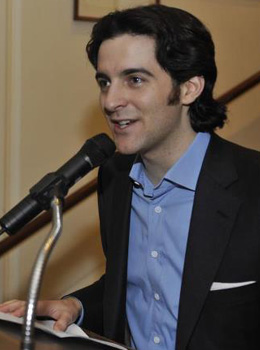 Please explain how the Cash King list is compiled.
Please explain how the Cash King list is compiled.
The way that we come up with the list is we look at tangible numbers from databases like Pollstar, touring statistics, record sales, data from Nielsen SoundScan and the Recording Industry Association of Americ (RIAA) and we have industry standard calculations for merchandise sales. As far as endorsement deals and things like Dre Dre’s Beats By Dre, that’s where the Forbes element comes in. That’s us working our connections in the industry, our connections to artists and managers and lawyers in the music industry and also on the business side talking to Wall Street analysts and people who are on the inside of these private deals. They may not be named in the stories but that’s where the reporter’s Rolodex comes in pretty handy. In my case, having covered this stuff for over five years it’s not easy stuff to get confirmed but I think what sets Forbes apart is our connections and the ability to get sources to talk on background about those big deals that people don’t know about.
The Forbes list has been mentioned in the music of 50 Cent, Jay-Z, Diddy, and recently Drake gave you guys a shout-out. There will always be detractors who say their money wasn’t counted correctly. How do you respond to that?
It’s just like any of the other Forbes rich lists outside of music. There are people who always argue with our valuation and say they made more or are worth more in hip-hop as well as the regular finance world. Donald Trump, for example, always says he is worth more than we do but it’s amicable. He talks to us. He doesn’t shun us. He sort of says, “Here’s what I think I’m worth.” Then we say that this is what we think you are worth. We have a scientific process for valuating his various assets. Similarly, with putting together the earnings list for hip-hop there are people who will sometimes quibble with our valuations. It doesn’t mean we don’t’ get along or they don’t talk to us but some people say they are worth more. Some people say that they don’t want to be on the list but it doesn’t really work that way. We’ve been putting out wealth lists here at Forbes for decades. People can’t request to not be on the list. In some cases we are approached by people who do not want to be on the list because of some kind of divorce or child support situation. They may have some kind of pending litigation with a former spouse or former business partner and don’t want their numbers out there like that. But we always print what we find.
Dr. Dre was not the top earner last year. He was at No. 8. Did last year’s ranking include Beats by Dre?
We gave him a little bit for profits on Beats but we were very conservative because it was very early. That list came out in August 2011 but it was for earnings from May 2010 to May 2011 and Beats was only officially founded in 2008 so that didn’t really reflect that much. Beats didn’t make up the vast majority of that $14 million-dollar figure and clearly this year it made up the vast majority of his $110 million-dollar figure.
In May, Dre and his partners sold 51 percent of Beats by Dre to HTC and recently they bought back half of that. Did that purchase affect his numbers negatively or positively?
Really, it’s kind of a wash because they bought it back so quickly after having sold it. I think it was basically them doubling down on what they believe to be a good investment and they had the money to do it since Beats is just giving them all of this cash for their share. From my reporting, and Beats won’t confirm this, but everybody I’ve talked to around the deal says that at the time of the initial sale to HTC, Dre and Jimmy Iovine [chairman of Interscope and Beats by Dre co-founder] each had a third and the remaining third was divided amongst other partners including Universal Music Group and some other individuals. When they bought back half of the half that they sold to HTC it then bumped up Dre’s total stake in Beats to 25 percent of the whole company. I think they have a great business model. They are the first mover in the luxury celebrity headphone space. They have half of the market and sell them at over $100 a pair which is kind of mindblogging when you think about it and the rumor now is that they are working on an iPhone killer. If they can do that then Dre might find himself not only on our hip-hop Cash Kings list every year moving forward but maybe on the billionaire’s list one-time soon.
Did you attempt to talk to Dre for this piece?
Oh yeah. We tried to get Dre. But he doesn’t do a lot of press and it depends on kind of the cycle. He’s also not a guy who does album cycles because his albums come around once every 10 years. [He laughs.] So it’s the kind of thing where you’ve got to get him at the right moment and if it’s a Beats event and he’s showing up and you can get him for a few minutes then you can do that but he really doesn’t give many in-depth magazine interviews. It’s very rare.
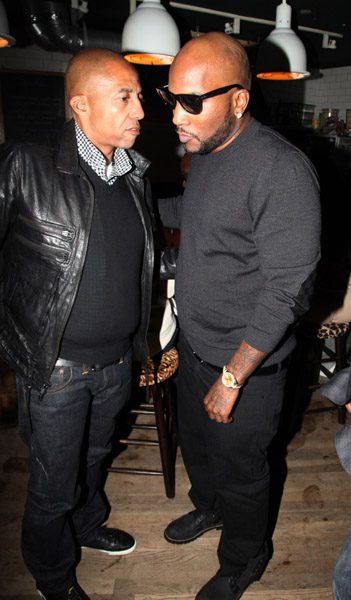 You interviewed Kevin Liles for this piece and he became a valuable asset to your coverage of Dre. While he was president of Def Jam, he saw many of his artists become moguls.
You interviewed Kevin Liles for this piece and he became a valuable asset to your coverage of Dre. While he was president of Def Jam, he saw many of his artists become moguls.
Talking to Kevin Liles was an example of the level of people we talked to in order to form this list so we are really bouncing things off of people who are really highly placed in the industry. We also talked about Ludacris. I quoted him in that story. He’s the guy who signed Ludacris.
Did he give you anything interesting about Young Jeezy since he manages him?
We talked a little bit about Jeezy’s clothing line [8732] which I think a lot of people don’t know about. That’s one of the more underrated income streams among all of the artists on the list.
What surprised you most about this year’s list?
One guy who I was surprised by when I started doing my research for this a while back was to find out about Tech N9ne being on the list. I think he started out as more of a regional emcee and was much more popular in the Midwest but the more I looked into it and the sheer volume of shows that he did and the fact that he owns his own label and how he has a whole apparatus for putting out merchandise and that really lowers their cost. It’s really remarkable. Here’s a guy who a lot people don’t know about and he’s making as much money as Timbaland and Akon. He’s a much smaller name but he is really hustling out there.
Speaking of Akon, he appears on this list and he’s a singer. If you added him why don’t we see artists such as R. Kelly, Usher, or Trey Songz? Since Kevin Liles also manages Trey, did he urge you to consider him?
That’s a really good question. Kevin and I talked about Trey Songz but he and I agreed that pretty much Trey Songz is pop and not hip-hop but the line is getting blurrier and blurrier as hip-hop becomes more and more a part of the mainstream. Nobody really questions Drake but Drake is pretty poppy. I know he raps but I don’t know. Just because spoken verse rhyme has found its way onto mainstream radio does that mean that rap is pop? I don’t really know. I think it’s a more interesting question with a guy like Akon because he doesn’t really rap. He sings. But he’s also a producer and we have a lot of producers on this list pretty much exclusively in the hip-hop field so it’s a sticky territory. Usher is pretty clearly R&B although he does work with a lot of hip-hop artists. Nobody would really contest that. Is Justin Timberlake hip-hop? He’s pop. But then again if you compare somebody like Justin Timberlake to somebody like Akon what’s the difference? Well, Akon produces maybe more hip-hop stuff but Justin Timberlake does have that hip-hop sound and he does work with Timbaland a lot so it’s really hard to draw the line but we had to draw it somewhere.
What about T-Pain then?
We looked at him but he didn’t make quite enough money to make it this year and he’s made it in previous issues. But he’s another one. Is he hip- hop or pop or what? But he didn’t make quite enough money to land on the list.
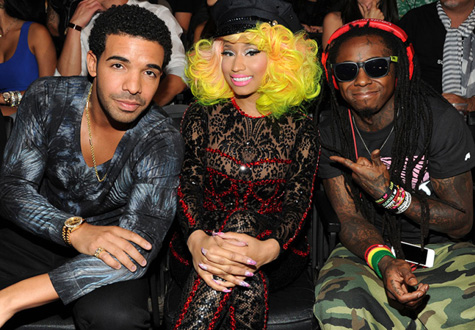 You often hear stories of how rap artists aren’t fairly compensated but this list shows a different story. There are lots of crews making money here. You have Baby, Lil Wayne, Drake, and Nicki Minaj on the list from Young Money/Cash Money. You mentioned how Tyga from Young Money had a big year and his debut album only sold 300,000 copies. Then you have Rick Ross on the list and his artist Wale not making it but still earning $5 million in the last year. J. Cole didn’t join his boss Jay-Z on the list but almost made it. Am I missing something here?
You often hear stories of how rap artists aren’t fairly compensated but this list shows a different story. There are lots of crews making money here. You have Baby, Lil Wayne, Drake, and Nicki Minaj on the list from Young Money/Cash Money. You mentioned how Tyga from Young Money had a big year and his debut album only sold 300,000 copies. Then you have Rick Ross on the list and his artist Wale not making it but still earning $5 million in the last year. J. Cole didn’t join his boss Jay-Z on the list but almost made it. Am I missing something here?
No, you are not. It takes a while to get to the top. The only paths to the top are to become a diversified mogul beyond music or to become a huge touring act or to kind of become a pop crossover star. You probably have to do two of those three things. If you look at the Top 8 with Dre, Diddy, Jay-Z, Kanye, Wayne, Drake, Birdman and Nicki, they are all either huge touring acts or they are major entrepreneurs or both in Jay-Z’s case. And in order to become a major touring act or major entrepreneur you have to have years of exposure that kind of elevates your profile to a level where people will sell out an arena to see you play or Budweiser will fork over seven figures to have you do a music festival for them. It takes a while sometimes. Drake is up there because he is really cleaning up on the road.
Tyga is an amazing story though because he has only sold 300,000 copies of his album and we often use a gold album [500,000 copies sold] as a benchmark to establish any kind of wealth. Then we often hear stories of artists going gold and still struggling financially.
But it really takes a while especially on the touring front because that’s where the money is made unless you are talking about huge endorsement deals. You really have to reach a threshold before you can become a viable arena touring act or be like Tech N9ne and do like 200 shows a year and he probably made comparable to what Wale makes per show or even less but he just tours so much and that was a big reason that he got that high up on the list.
It’s just impressive for aspiring artists to see that you don’t have to sell a million records to obtain wealth.
You raised a good point. It think Mac Miller is the first rapper to make this list without a major label record deal.
You interviewed Timbaland, Wale, and Ludacris for this piece. How did you select which artists to interview?
As a music writer, I have opportunities to interview different people and in the case of Timbaland it was something that happened pretty fortuitously and I just hung on to the interview and saved it for Cash Kings. But I thought Ludacris was a great example of someone who had really truly diversified. He’s got a couple of new ventures with the cognac and the headphones. I thought he would be a really good guy to pick. We always try to get a couple of up-and-comers especially ones who are either on the list or very close to making the list and Wale just missed the list but he certainly made enough that if we expanded the rankings down to the Top 25 instead of the Top 20 he definitely would have been on there. We had Theophilus London and Das Racist as well and my colleagues Natalie Robehmed and Chris Barth did those stories and I think they added a lot to the package on the up-and-comer side. And we try to have somebody in the Top 5 every year. I didn’t talk to Jay-Z but Steve Forbes did. And he wrote the Jay-Z piece which you can find on the site that’s an excerpt of the foreword that he wrote for my book, “Empire State of Mind,” and that was kind of put together based on his interview with Jay-Z when he went out to Omaha with Warren Buffet a year or two ago.
 Where does someone like LL Cool J fit in? He didn’t release a record in the last year but he’s a rapper and makes most of his money from acting now. Is he even considered for this list?
Where does someone like LL Cool J fit in? He didn’t release a record in the last year but he’s a rapper and makes most of his money from acting now. Is he even considered for this list?
Yeah, we will look to see if they did any amount of touring and that’s what will usually push somebody onto the list. But guys like LL Cool J and Nas make a good living for themselves but it’s just not necessarily $6 million a year.
So what if LL’s money was all from acting and it came up to $6 million? Does he make the list then?
If it was all from acting we wouldn’t have put him on. The language we used was “living artists whose work is primarily classified as hip-hop or rap.” A bulk of LL’s work is classified as acting. That said, the bulk of Dre’s income comes from Beats but that is sort of an extension of his persona as a hip-hop superproducer. We would easily classify Ice Cube or Ice-T more as actors than rappers at this point. Will Smith is a great example. We’ve never counted him on the list and people have complained about that but do you really think of Will Smith as a rapper? He’s an actor. That’s pretty cut and dry. I guess there’s always a fine line and Diddy acts but clearly the bulk of his earnings come from Ciroc and Ciroc is kind of tied to his hip-hop impresario aura so that’s where we go with him.
For more information on Zack O’Malley Greenburg’s “Empire State of Mind,” log on to JayZbook.com.

